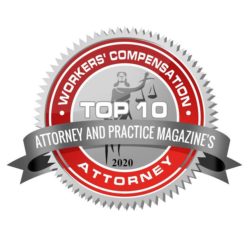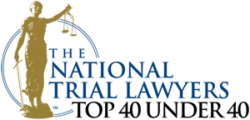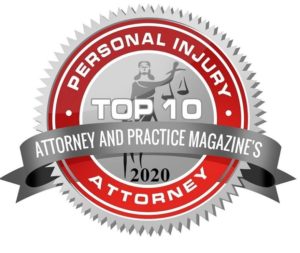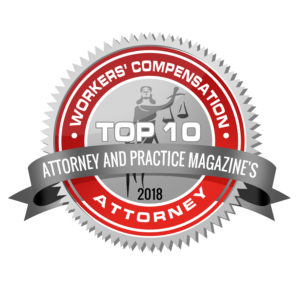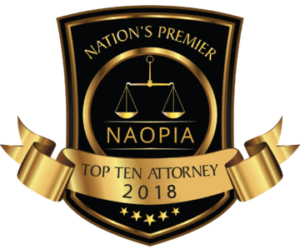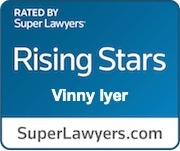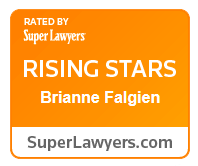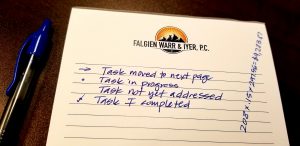
I’ve often had people ask me what the hardest part about being in the legal field is. I’ve thought about this a lot because it coincides with my desire to be the best attorney I can.
I’ll first start by summarizing the difference between “hard” and “soft” skills. I think of hard skills as the foundational knowledge on a subject, whereas soft skills are the ways you handle and interact with that knowledge. For a great summary on the subject, check out this Indeed article.
I’m going to cheat a bit and just talk about some soft skill items, and then save the discussion for hard skills for later. I’ll cheat even further and say it’s difficult to pin down just one thing, so here are ten I think are important:
 Personal Phone. Put your cell phone in a different room, a bag, or drawer. It’s not enough for it to be off, face down, etc. because you’ll see it and at that point, you’ve lost the battle. This will help you combat things like Phantom Vibration Syndrome. If you need a mental break, do things like go for a walk, play with a pet, or make a snack but avoid your phone. I personally have even gone so far as to turn off notifications, but that’s just me.
Personal Phone. Put your cell phone in a different room, a bag, or drawer. It’s not enough for it to be off, face down, etc. because you’ll see it and at that point, you’ve lost the battle. This will help you combat things like Phantom Vibration Syndrome. If you need a mental break, do things like go for a walk, play with a pet, or make a snack but avoid your phone. I personally have even gone so far as to turn off notifications, but that’s just me.
- Task List Management. Our office uses Clio, but I’ve used other programs like Needles and Time Matters. They all basically work the same in that they are case management software and will create many tasks for you on all your cases.
Regardless of the program, your task list is always the first thing you should start your day with, and it’s the thing you quickly check at the close of business. It’s how you will organize your day; if you must, physically block those items and times off on your calendar. Starting here not only helps you manage weeks that are constantly in flux, but it will also show clients and supervisors you are working because it will electronically post items to the cases upon completion.
Note: This is one of the reasons why it’s important not to have a handwritten list either; keep it all digital only. Not only that, it’s way easier and faster to modify tasks.
- Hard Things First. After you run through and update your task list, of those overdue items you see, you must absolutely start with hard things first. And by hard things I mean things you’re dreading – discovery, releases, saving documents, challenging phone calls… whatever it may be. There is a sense of relief in accomplishing goals and ticking boxes off in general, but believe me that you will sleep better at night knowing you took care of the worst items first.
- Interrupting Tasks. Now that we’ve made a master plan for the day and are tackling the toughest of goals first, the only things we allow ourselves at FWI Legal to be interrupted by is a) important client calls, b) previously scheduled meetings, c) urgent group chat messages or office drop-ins, and d) potential new clients. Everything else is most likely a magician using shiny sleight of hand to distract you from what is really going on.
- Notebook Management.I’m sure I’ll sing the praises of The 7 Habits of Highly Effective People and its systems until the day I die. Notebook management is one of them, and I’ve personally used this method for almost 20 years now.
Always have a notebook close by so you can write notes down. Now, you may be thinking “hey, didn’t you just say DON’T write stuff down?” Not exactly; I said don’t write “To Do” lists down. There are still times you will need a notebook, whether it’s taking voicemail notes, business meeting thoughts, etc.
 Don’t treat it like a scrap paper either, do a numbered list in outline format. When that task is handled or officially transferred over to Clio, put a checkmark next to the number. If you’re working on it and it hasn’t yet been completed, put a dot next to the number (until it becomes a checkmark). And if you didn’t get to it and you’re moving to a fresh page in your notebook, put an arrow and start that new page with those items (same goes for “dot” tasks that didn’t get finished). This way, NOTHING gets forgotten because it’ll have some kind of mark next to it.
Don’t treat it like a scrap paper either, do a numbered list in outline format. When that task is handled or officially transferred over to Clio, put a checkmark next to the number. If you’re working on it and it hasn’t yet been completed, put a dot next to the number (until it becomes a checkmark). And if you didn’t get to it and you’re moving to a fresh page in your notebook, put an arrow and start that new page with those items (same goes for “dot” tasks that didn’t get finished). This way, NOTHING gets forgotten because it’ll have some kind of mark next to it.
Then reserve the right side of your notebook for that random stuff that doesn’t need to be officially recorded. For example, I sometimes use that side for doing indemnity benefit calculations when estimating values.
- Emails. Similar to notebook management, you shouldn’t remove an email from your inbox until it’s properly managed. Much like task list items listed above, it’s easy to look at these and cherry pick what you want to do, but if you do that, you’ll miss important or time sensitive ones because you’re too busy focusing on (currently unimportant) emails that just arrived in your inbox. I’ll give you the same advice I give my kids in the toy isle: you can look, but no touching.
Emails are kind of like physical mail and just randomly show up, so it’s up to you to put them in their proper place. Create a task for each of them and then get them out of your inbox. You can’t organize an inbox by priority or deadline importance, and it’s mentally exhausting to see 100 emails after having just seen 100 task items. Once they’re properly placed, put them in subfolders or delete them.
*sudden record scratch noise*
“Jerrod, did you say to ‘delete’ something?!” Yes! Whatever it takes to move it; don’t end up on the next episode of Hoarders, Digital Edition.
 Don’t Gloss. You never know what will be important in a case, and there is the tendency I’ve seen in some over the years to gloss over more mundane tasks. There could be a “basic correspondence” or a “tiny cost” that actually redeems you when a mistake would have otherwise come up. Perhaps it’s “just a physical therapy note” that wasn’t saved in the proper file that would have been the tipping point for a jury. You honestly never know.
Don’t Gloss. You never know what will be important in a case, and there is the tendency I’ve seen in some over the years to gloss over more mundane tasks. There could be a “basic correspondence” or a “tiny cost” that actually redeems you when a mistake would have otherwise come up. Perhaps it’s “just a physical therapy note” that wasn’t saved in the proper file that would have been the tipping point for a jury. You honestly never know.
We’ve all seen great detective stories where the devil was in the details, so don’t pretend it’s any different in the legal field. It’s easy to lull yourself into sloppy work when you’ve done a task for the umpteenth time or you are rushing through it to get back to “real work.”
- Take Ownership Over your Department. This is critical for associate attorneys and staff members like paralegals and law clerks. You must mentally condition yourself to say “I am more than an assistant; I am a co-captain of this ship.”
When you do this, you’ll become proactive in case management and decision making. You’ll start making smarter moves in the present because you’ll see many steps into the future. You’ll be the one to respond first to an email sent to you and the lead attorney, instead of just waiting for “the boss” to do it.
You’ll do more than simply send updates, you’ll offer up suggestions as well. You’ll tell a supervisor out of the blue you completed some task without having to be told. You’ll address an issue before it becomes a problem, even though you don’t technically have to (for example, calling a client to remind them about a medical appointment). You’ll speak up when something is bothering you because you’ll feel empowered to do so.
You will accept the fact that a failure in the department is a failure for everyone involved, not just the attorney with their signature on the page. Happily, you will also accept that successes are also equally shared. If you ever want to be a leader of others, you must start thinking like one. Start right now to emulate qualities you admire in people (supervisors or not) while simultaneously improving on the weaknesses you see.
- “30-day” Reviews. I say “30-day” because that’s the longest you want to go before checking in on a client and their case. See how they’re doing and also look through the case to see where things are and what needs to be done. Don’t ever put these reviews on a weekend, and spread them out so they don’t all hit at once.
Move them to coincide with important case deadlines or moments. Does a client have a filing due on the 15th? Put their 30-day review on the 10th to minimize error (don’t forget an actual filing task as well). Does a client have a surgery on the 18th? Put the 30-day review on the 16th and be sure to wish them well and let them know we’re thinking of them.
Put yourself in their shoes and realize they should start off the relationship with the assumption that they are important to us and not a burden. Create and bank goodwill with them; it’ll go very far throughout the duration of the case and help create future business via word of mouth.
This does not replace department reviews, which are a holistic approach to case management. This is instead a fast, efficient way to touch on every client’s case periodically so you always have your ear to the ground.
- Personal Well-Being. This may seem like a weird addition, but make sure you are pursuing meaningful relationships, happiness, and health — not meme-length distractions. Another 7 Habits lesson, you are a saw and only as sharp as your weakest point. Recognize that we all take on roles (mother, brother, partner, attorney, scrapbooker, singer, etc.) and manage your life in a way to address problems that affect each of these roles. For example, you can’t be an effective paralegal if you’re dealing with a family crisis.
That might mean taking some time off to help someone, get healthy, or simply recharge. But if your work is well organized, you and your supervisor won’t be stressed when you’re out of the office. You’ll have done such an amazing job with case management as outlined above that you’ll be able to pick the day and time that works best. And while you’re away, your mind will be off of work and on what matters most.







